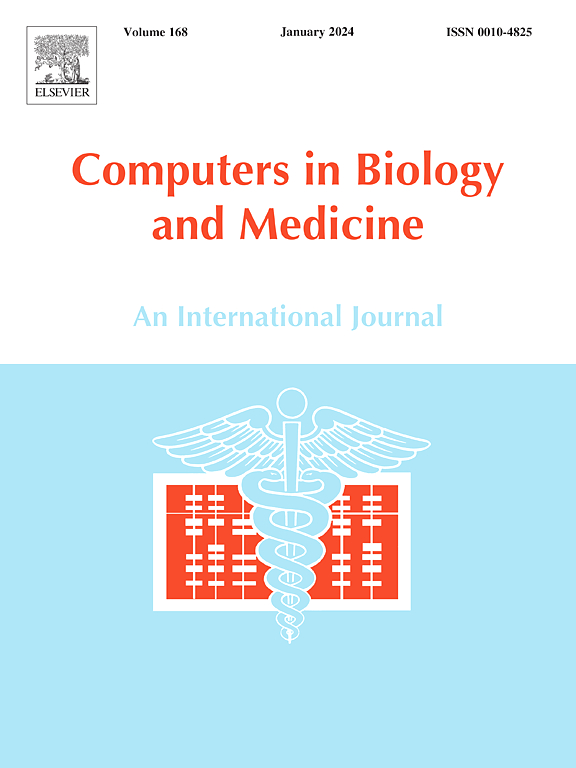Balancing privacy and health integrity: A novel framework for ECG signal analysis in immersive environments
IF 7
2区 医学
Q1 BIOLOGY
引用次数: 0
Abstract
The widespread use of immersive technologies such as Virtual Reality, Mixed Reality, and Augmented Reality has led to the continuous collection and streaming of vast amounts of sensitive biometric data. Among the biometric signals collected, ECG (electrocardiogram) stands out given its critical role in healthcare, particularly for the diagnosis and management of cardiovascular diseases. Numerous studies have demonstrated that ECG contains traits to distinctively identify a person. As a result, the need for anonymization methods is becoming increasingly crucial to protect personal privacy while ensuring the integrity of health data for effective clinical utility. Although many anonymization methods have been proposed in the literature, there has been limited exploration into their ability to preserve data integrity while complying with stringent data protection regulations. More specifically, the utility of anonymized signal and the privacy level achieved often present a trade-off that has not been thoroughly addressed. This paper analyzes the trade-off between balancing privacy protection with the preservation of health data integrity in ECG signals focusing on memory-efficient anonymization techniques that are suitable for real-time or streaming applications and do not require heavy memory computation. Moreover, we introduce an analytical framework to evaluate the privacy preservation methods alongside health integrity, incorporating state-of-the-art disease and person identifiers. We also propose a novel metric that assists users in selecting an anonymization method based on their desired trade-off between health insights and privacy protection. The experimental results demonstrate the impact of the de-identification techniques on critical downstream tasks, such as Arrhythmia detection and Myocardial Infarction detection along with identification performance, while statistical analysis reveals the biometric nature of ECG signals. The findings highlight the limitations of using such anonymization methods and models, emphasizing the need for approaches that maintain the clinical relevance of ECG data in real-time and streaming applications, particularly in memory-constrained environments.
平衡隐私和健康完整性:沉浸式环境中ECG信号分析的新框架
虚拟现实、混合现实和增强现实等沉浸式技术的广泛使用,导致了大量敏感生物特征数据的持续收集和传输。在收集到的生物特征信号中,ECG(心电图)因其在医疗保健中的关键作用而脱颖而出,特别是在心血管疾病的诊断和管理方面。大量的研究表明,心电图包含一些特征,可以区分一个人。因此,为了保护个人隐私,同时确保健康数据的完整性以实现有效的临床应用,对匿名化方法的需求变得越来越重要。尽管文献中提出了许多匿名化方法,但对其在遵守严格的数据保护法规的同时保持数据完整性的能力的探索有限。更具体地说,匿名信号的效用和所达到的隐私水平往往存在一种权衡,这种权衡尚未得到彻底解决。本文分析了在心电信号中平衡隐私保护与保持健康数据完整性之间的权衡,重点介绍了适用于实时或流应用且不需要大量内存计算的内存高效匿名化技术。此外,我们引入了一个分析框架来评估隐私保护方法以及健康完整性,结合最先进的疾病和个人标识符。我们还提出了一种新的度量,帮助用户根据他们在健康洞察和隐私保护之间的期望权衡选择匿名方法。实验结果证明了去识别技术对关键下游任务(如心律失常检测和心肌梗死检测)的影响以及识别性能,而统计分析揭示了心电信号的生物特征本质。研究结果强调了使用这种匿名化方法和模型的局限性,强调需要在实时和流应用中保持ECG数据临床相关性的方法,特别是在内存受限的环境中。
本文章由计算机程序翻译,如有差异,请以英文原文为准。
求助全文
约1分钟内获得全文
求助全文
来源期刊

Computers in biology and medicine
工程技术-工程:生物医学
CiteScore
11.70
自引率
10.40%
发文量
1086
审稿时长
74 days
期刊介绍:
Computers in Biology and Medicine is an international forum for sharing groundbreaking advancements in the use of computers in bioscience and medicine. This journal serves as a medium for communicating essential research, instruction, ideas, and information regarding the rapidly evolving field of computer applications in these domains. By encouraging the exchange of knowledge, we aim to facilitate progress and innovation in the utilization of computers in biology and medicine.
 求助内容:
求助内容: 应助结果提醒方式:
应助结果提醒方式:


